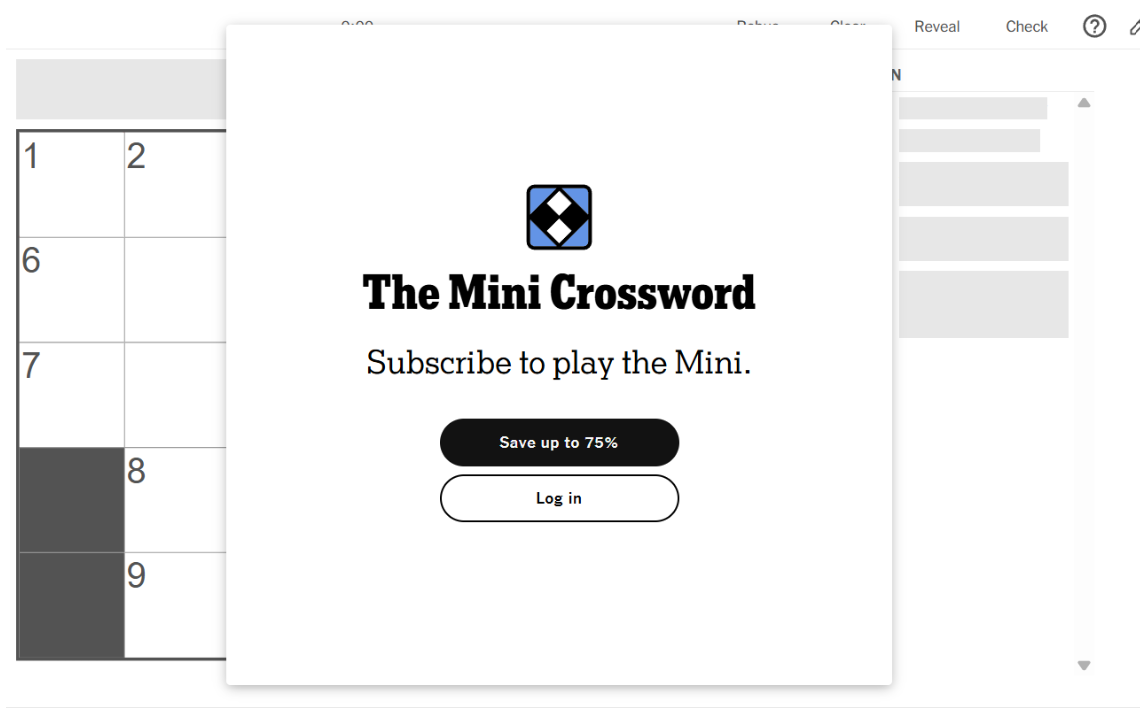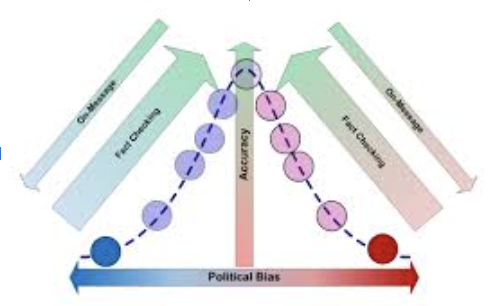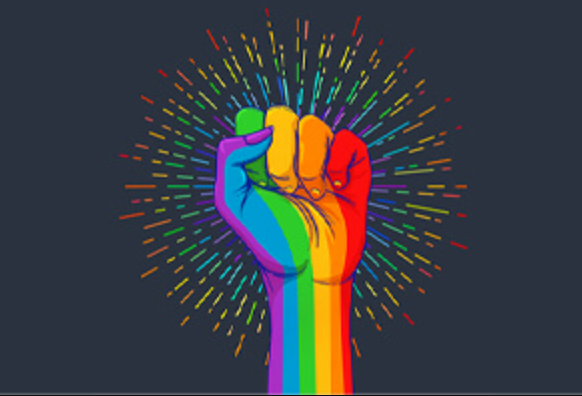Previously published Jun. 1, 2022
I’ve seen surveys across the internet that tell the public that gender is immutable – it’s based in biology, women and men are fundamentally different, there are only two genders, and on and on. None of that, to me, has any basis in reality. I strongly believe with all of my being that gender is a social construct, and I wrote this article to prove it.
OBLIGATORY DISCLAIMER: These are just my opinions – if you disagree, that’s your personal decision. I’m not imposing anything on our readers or expecting you to feel a certain way about anything. I just wanted to give the world my perspective on gender.
What even is gender? It used to be clear – it’s getting more and more confusing as time passes. There are a lot of ways to see gender, and we’re going to use my favorite literary device, analogies, to describe them. The way I see it, most people see gender in one or more of these ways:
- as a physical trait. It doesn’t change, it’s just there, and (depending on who holds this opinion) it can either affect immutable parts of your personality/existence or have no effect at all beyond simply the physical realm. There’s no change, it’s just who you are and you have to live with it, no matter what it is.
- as an emotional state of mind. Your gender is up to you, and you have the right to choose what it is. It can change, it can be different from what you started with, you can even have no gender at all. Your gender does not define anything about you – everything is changeable.
- as a hobby or a fandom. (Hear me out here, I actually mainly fall into this category) It’s just an arbitrary designation given to you when you’re born, and you can change it, stick with it… it’s not so much that it’s flexible and doesn’t limit you/your abilities (like the emotional state of mind people), it’s more that it’s a category you place yourself into and what value you assign that category depends on who you are and what that category means to you (just like how much someone pursues a hobby/dedicates themself to a fandom depends on the person and what value/meaning they place on that hobby/fandom). Whoo, long sentence. I realize this might be extremely confusing and abstract, sorry about that, just fingers crossed you can understand it somewhat.
- as your personality. It affects everything you do, it’s an integral part of your life (maybe the MOST integral part of your life) and it impacts yourself and your interactions with others often. I do think this category is shrinking currently as more and more people defy gender norms/gender itself.
I’m in the hobby category. Personally, I place zero value on gender as a designation, I’d much rather identify myself by my personality, values and interests separate from gender (hence the ‘Gender is a social construct’ stuff). In my opinion, unless I’m looking for a specific outcome from relationships (i.e. having biological kids) gender shouldn’t matter at all, not in relationships, not in friendships, not in society, nowhere.
(On Gender by Vi Hart)
This video explains almost perfectly how I feel, enjoy it. (Vi Hart’s an awesome YouTuber if you want to check out their other stuff too.) Obviously, being in the ‘gender is a social construct’ mindset, I don’t put any stock in any of the stereotypes (men are not empathetic, women are emotional, etc.) I occasionally find myself wondering – why do these stereotypes exist anyway? Who decided that women are, as a group, more emotional than men and spread that opinion? I have a theory about that involving PMS (which not all women have, by the way, that’s a quite popular misconception), but I could talk about that for a very long time, so in the interest of not making this article as long as Santa’s naughty-or-nice list I’m going to move on. It is very interesting to think about this, though, since the vast majority of men and women I know contradict these stereotypes directly in many different ways; I’m extremely curious about how they got so pervasive.
Alright, time to look at studies. A while back, I read a book about gender and how it manifests in young boys, girls and everyone in between. The reason it focused on young kids was to attempt to eliminate the socialization aspect – the fact that many men and women learn gender-appropriate behaviors from their surroundings and society in a conscious or subconscious effort to ‘fit in’. This is what a lot of studies on gender are missing, but the studies that take this into account definitely show a lot less differences between genders. I actually have a study that I read about that I want to draw attention to – the red-shirt blue-shirt experiment. (That is not what it was called, but I can’t for the life of me remember its actual name.) Basically, young kids were split in half randomly and given either red shirts or blue shirts to wear. They were then put into groups based on those shirt colors and those groups were constantly referenced in their class. (For example, the teacher would tell all red-shirt kids to go to their lockers, then blue-shirt kids. The teacher might tell blue-shirt kids that they were well behaved or that they did a bad job on their tests.) If you think about it, this isn’t very different from how teachers address students using gender. (Girls, go to your lockers first, then boys, you go!) You might have guessed this: by the end of a few weeks, animosity had developed between the two groups – everything became “red vs blue”, even the simplest of tasks. They had even developed seemingly arbitrary, untrue stereotypes about each other (ex. blue-shirt kids are smart! red-shirt kids are the athletic ones). Kids are impressionable, and if such a random designation as red and blue can have such an effect on how they see each other, what could a category like gender that is reinforced by parents, teachers, peers and society at all times do? Make them amplify differences that might not even be there, that’s what.
Or… the differences might actually exist. Something to chew on – it’s been scientifically proven that boys mature slightly slower than girls do, which could contribute to the differences that these kids end up amplifying in school (some stereotypes that might stem from this: girls are more calm and studious, boys are rough-and-tumble). This difference fixes itself in kids’ tween and teen years, as boys catch up to girls developmentally, but of course by then it’s too late and the gender differences have been solidified in kids’ minds.
I know this, though – there are more differences within gender than between genders, by FAR. Even something biological: yes, men are stronger than women. The average man is slightly stronger than the average woman. That does NOT mean that any random man could beat any random woman in a strength contest. The range of strength in men alone as a category, as well as women alone, is FAR larger than the average difference between strength by gender. So I don’t think gender differences, even if they do exist, are that big of a deal at all. There are plenty of women out there who are easily capable of lifting heavy stuff, they just don’t because they’ve been told their whole lives that that’s a man’s job because men are stronger than all women by default. I know girls who are stronger than most boys in their classes – conversely, I know girls who aren’t. I know boys who would lose to all the girls they know – I also know boys who would beat everyone, no matter their gender. There’s just too much variation within gender to really say anything about the traits of one person in particular using their gender. Now to the actual ‘socialization’ part of ‘gender is a social construct.’ I’m going to latch on to one stereotype that’s always annoyed me: girls are more gentle/empathetic than boys, who are competitive and crude. I know more empathetic boys than girls. Obviously, ‘the boys I know’ is not a random sample, and I can’t control for other variables like the bandwagon effect, but I have to ask – if there is a biological urge in girls to be empathetic, why don’t all girls have it or at least some semblance of it? What causes this urge to be empathetic – where is it coming from and why can’t we harness more of it for boys too? Is this an ‘empathy hormone’ that only women have? Boys might be somewhat predisposed to being rowdy and active, but if that’s the be-all end-all this-is-how-biology-is truth, why are there inactive boys and active girls (and there are SO MANY of them too)? There might be a slight skew of a trait in one gender direction or another but honestly, all together, it depends on the individual kid/person and their family/friends/location more than it depends on anything gender-related whatsoever. Why are we using gender to predict character traits/influence kids when there are so many other, far more significant, factors to consider? And I have to mention it – if we’re separating gender up like this what about the nonbinary people? The agender or polygender people? What about intersex people and their characteristics?
Where do they land on this nice two-sided structure that doesn’t fit more than half the population of the world anyway? That’s a whole different topic, though, and I can’t start talking about that here without ending up making this article a mile long. Okay, but honestly, at this point, it might be best to just nix gendered characteristics/traits as a thing altogether and just let people identify by their biological organs (if they want) or just let them not think about gender at all. Gender isn’t specific categories that you have to find your fit in. According to me, if you’re confused about your gender or don’t like your gender or something about you doesn’t fit with your gender, it doesn’t matter. Gender is fairly useless at this point anyway.
Alright, so to conclude, gender is a predominantly social construct. If I had it my way it would be ENTIRELY social, but I recognize that there are some gender patterns that need to be accounted for (like discrimination against women) that we need to fix before we can move at all towards getting rid of gender as an institution at all. If gender is your thing and you want to identify with the traits of one/multiple, that’s your decision to make. All I’m saying is that it’s not anything fixed or determined, it’s very, very flexible. You shouldn’t be forced into conforming with a gender and/or its traits; gender in its entirety shouldn’t mean anything to you that you don’t personally choose for it to mean.
That’s all, folks. Thanks for reading, and hope you learned something!
Sources:
- Book: “Parenting beyond Pink and Blue”
- https://www.professorshouse.com/raising-boys-versus-girls/

















![Teacher [Milk] Tea: Part 2](https://bisvquill.com/wp-content/uploads/2024/03/Screen-Shot-2024-03-19-at-9.28.48-PM.png)




































